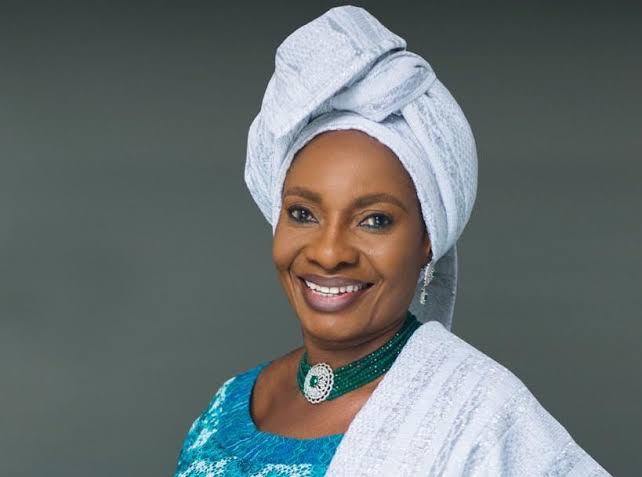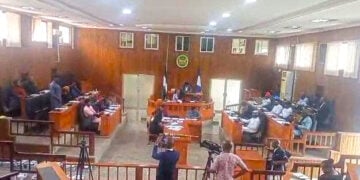The federal government has revealed that there is high rate of violence against women, children, and other persons with disabilities (PWDs) in the country.
The minister of Women Affairs Dame Pauline Tallen disclosed this during the Launch of the research report “On Decent Work to Decent Work for Persons With Disabilities in Abuja said that persons with disabilities throughout the world have been subjected to widespread violations of their human rights.
Tallen said the available statistics indicate that the unemployment rates and more workers with disabilities tend to be twice or three times more than that of other workers.
The minister who was represented by Mrs Onwuzurike Gloria said: “The challenge of access to the physical environment including transportation, housing or workplaces coupled with still health prejudices among many employers, co-workers, and the general public aggravates already difficult situations.
“It is worrisome to know that physical accessibility prevents a major barrier to many persons with disabilities seeking work or training this also applies to locally built environments,” he said.
In his welcome remarks, the country programmes director, Solidarity Centre, Sonny Ogbuehi who was represented by senior programme officer Bashman Mohammed said in 2021, the Solidarity Center supported the NLC to conduct a study on the prevalence of Gender-Based Violence in Nigeria’s World of Work and the finding were shocking, about 56 per cent of workers reported to have experienced GBVH in their workplace and GBVH was the highest among workers in the informal section.
He said, “Part of the recommendation was to advocate for the ratification of the C190 and further research on the working conditions of workers with disabilities in Nigeria.
“We recognize the efforts of the working class toward the ratification of the Convention on Violence and Harassment and congratulations once again.”
In 2022, he said Solidarity Center supported workers from trade unions and CSOs in conducting participatory action research on the working conditions of workers with disabilities despite the ratification and domestication of the Convention on the Rights of Persons with Disabilities.
He said, “Now we are so proud to present the findings from this study. In my opinion, the time is now right to reflect on a number of questions. Have we been inclusive when we conduct activities?
Have our programs had the intended effect? How can we secure equal access to decent work for persons with disabilities? How can we secure lasting and sustainable growth?
“The discussions on the content of the findings will serve as a catalyst for advocating for equal access to decent work for workers with disabilities.
“In the next few months, the Solidarity Center will be conducting activities and workshops to increase knowledge of Equality, Inclusion, and Diversity (EID) where you will be able to join in and improve your understanding of EID in the workplace.”
The event which was convened by the national chairperson of the Trade Union Congress Women Commission (TUCWC)’s chairperson, Comrade Hafsat Shuiab in collaboration with the Solidarity Center had stakeholders including the representatives of key federal ministries and the president of the Trade Union Congress of Nigeria, Engr. Festus Osifo who was represented by the scribe of the union, Comrade Nuhu Toro.
Sharing the findings from the report, the programme officer, West Africa for the Solidarity Center, Janet Anaele, said most of the 660 workers surveyed are self-employed and in the informal sector.
Anaele said almost half of the respondents earn less than Nigeria’s minimum wage and say their work environment is not accommodating to their disability.
“Nearly a quarter of disabled workers had experienced gender-based violence or harassment (GBVH) during the last two years,” Anaele stated.
In response to the research findings and final report, Osifo assured to reserve space for qualified persons with disabilities in the TUC.
He also pledged his continued support to the TUCWC in ensuring inclusiveness and accessibility to decent work and pay as well as fighting against all forms of attitudinal, physical, and informational barriers to equal opportunities in the world of work.
We’ve got the edge. Get real-time reports, breaking scoops, and exclusive angles delivered straight to your phone. Don’t settle for stale news. Join LEADERSHIP NEWS on WhatsApp for 24/7 updates →
Join Our WhatsApp Channel










